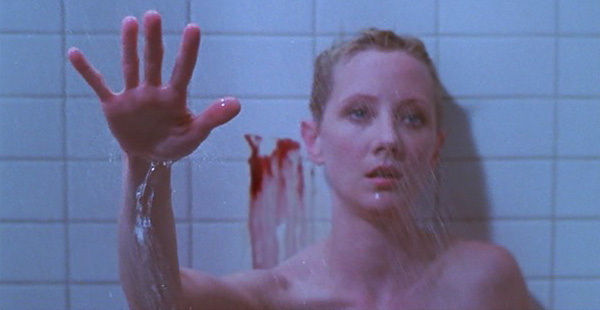An Experimental Controversy: Remaking 'Psycho'
Images courtesy of Universal
SPOILERS AHEAD
Take this with a grain of salt, but I read in the depths of Tumblr that during ancient times the Egyptians complained about the lack of originality. Some of the extraordinary Hieroglyphics are remakes of remakes. In the modern world, creative writing professors say there are only six or seven stories told over and over, but it’s up to the writer’s creation for originality. So if life recycles storytelling, why is it frowned upon in Film?
Alfred Hitchcock’s Psycho came out in conservative 1960. Centering around Marion Crane, a secretary tired with her job, she steals $40,000 from her boss’ client and runs off into the desert. Contemplating giving back the money, she spends the night at the Bates Motel where she meets her demise.
Shocking audiences, the film almost didn’t see the light of day because of the notorious shower scene; deemed too violent. If you pay attention, every time the knife goes in for a stab the film cuts away. In the film’s black and white glory, the picture is tamer than a sedated lion compared to today’s contemporary horrors post-9/11 “torture porn” such as Saw and Hostel.
Images courtesy of Universal
Gus Van Sant’s 1998 remake of Psycho is a shot-for-shot exploration updating a classic tale by painting the original’s Minimalist canvas with an Art Deco vibe, utilizing Joseph Stefano’s original screenplay as source material, Bernard Herrmann’s score orchestrated by Danny Elfman in stereo, and odd yet daring casting choices.
Vince Vaughn is Norman Bates. In today’s perspective, you’re probably thinking “how the hell can that goofball from Wedding Crashers play a knife wielding maniac?”Before his “Bro Pic” days, Vaughn’s resume consists of dramatic roles. He is bizarre compared to Anthony Perkin’s boy next door persona. You know Vaughn is the killer from the moment he appears, which is perfect because the original Psycho’s hidden secret is now part of pop culture lingo similar to the fact that everybody and their mother knows Darth Vader is Luke’s father. So instead of the twist coming out of left field, you anxiously wait for the big reveal.
Anne Heche plays Marion Crane, originally portrayed by Janet Leigh in an Oscar nominated performance. Heche’s brash approach diverges from Leigh’s subtle shade. When Heche asks her annoying co-worker about missed phone calls, we see the irritation wrinkle on her face, while Leigh ignores her co-worker in a day dream. Leigh keeps Crane’s intentions under wraps to only reveal herself in solitude, while Heche is straightforward about how done she is with her current situation.
Images courtesy of Universal
Julianne Moore anchors the remake with her badass performance as Marion’s sister Lila. Arguably an improvement from the original, Moore charges full force into discovering the truth behind her sister’s disappearance with no fucks given. Vera Miles performance seems reserved due to her counterparts lack of concern for Marion’s disappearance, but she persists in finding her sister anyways.
In it’s original release, Gus Van Sant’s Psycho bombed at the box office and critics dismissed the film. They all agreed the adaptation was unnecessary. While Roger Ebert gave the film one and a half stars, he recognized the experimental technique, but wrote “I felt oddly as if I were watching a provincial stock company doing the best it could without the Broadway cast.”
Commercial failure falls upon Universal Pictures. The studio branded the film towards mainstream audiences solely based on the original film’s legacy and the lingering impact on society’s correlation between fear and showering alone. The remake’s tagline reads “Check in. Relax. Take a shower.” The promotion lacked any acknowledgment that the remake is an experimental film, so when the everyday audience members came to the theaters expecting a new thrill ride, they felt gipped.
Images courtesy of Universal
But if you take away Hitchcock’s landmark film, Van Sant knows how to craft a well thought out picture. His version is a sturdy bridge between his indie days and the Hollywood machine. Van Sant’s Psycho follows the big studio vision but rebels in his avant-garde (or lack of) approach.
In retrospect, Van Sant respects Hitchcock’s vision and doesn’t claim the original idea as his own. Van Sant’s experiment proves that most times an exact visual recreation will upset an audience.
Images courtesy of Universal














